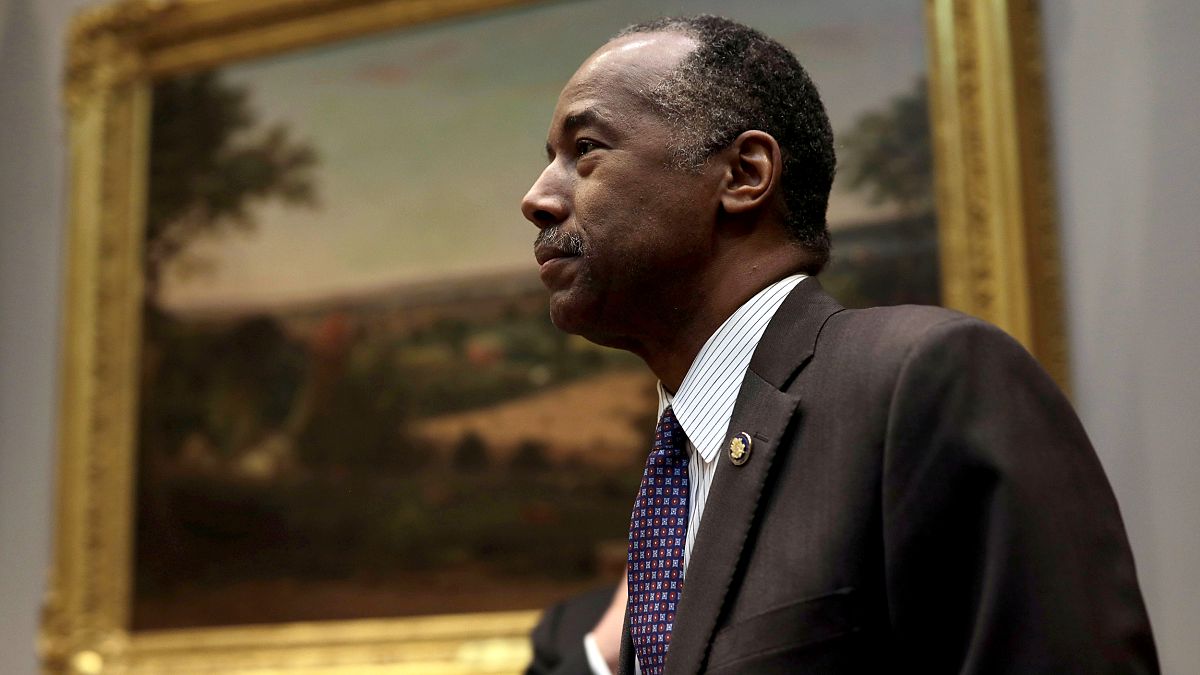Carson's comments to Congress follow an NBC News investigation into the lack of federal requirements for carbon monoxide detectors in public housing.
Housing and Urban Development Secretary Ben Carson acknowledged to Congress on Tuesday that a lack of carbon monoxide protections in public housing has put residents at risk, after an NBC News investigation exposed a growing death toll.
Appearing before the House Financial Services Committee, Carson admitted that HUD's existing protections were lacking.
"Over the years, we've all read and heard of tragic instances in which residents living in HUD-assisted housing have died as a result of their exposure to carbon monoxide," Carson said in his written testimony to Congress.
"Regrettably, there is currently no universal federal requirement that carbon monoxide detectors be installed in all HUD-assisted housing," Carson told legislators at the hearing. "That's wrong."
"Whether through regulation or legislation, it is our intention to require working carbon monoxide detectors in HUD-assisted housing whether state or local law requires it or not," he continued.
At least 13 residents of HUD housing have died from carbon monoxide poisoning since 2003, according to NBC News' tally, with four deaths this year alone.
Citing NBC News' findings, Rep. Jesús "Chuy" García, D-Ill., pressed Carson on whether he would support a House bill to require detectors. The bill, sponsored by Garcia, would include $10 million in funding to buy and install detectors in federally assisted housing.
"I am 100 percent for getting this carbon monoxide issue settled, and I appreciate your help in helping get that done," Carson told Garcia. "As quickly we can get it done, it's going to get done."
HUD announced on Monday that it would release $5 million in funds for carbon monoxide detectors in public housing. But the funding is not available for privately owned housing where the majority of HUD-assisted tenants live.
Last month, HUD announced that it would begin a lengthy rule-making process to require the devices in the housing that it oversees for more than 4.6 million low-income families. Some housing advocates have urged HUD to take emergency action to require carbon monoxide detectors immediately, but HUD says it cannot move more quickly unless Congress passes a bill on the detectors. Neither the House nor the Senate has moved forward with the legislation.
News
Rep. Alexandria Ocasio-Cortez, D-N.Y., stressed the importance of providing funding for carbon monoxide detectors in both publicly and privately owned HUD properties before requiring detectors.
"If you're going to mandate a facility to pay for carbon monoxide detectors and then you're not going to provide any of the resources to do so, what kind of situation are you creating?" Ocasio-Cortez told NBC News outside the hearing room.
Ocasio-Cortez, who supports Garcia's bill, connected the lack of carbon monoxide detectors to the broader issues of disrepair in public housing, noting that New York City's housing authority alone needs $32 billion in capital repairs. In its latest budget, the Trump administration proposed eliminating the public housing capital fund entirely, and public housing groups say that even current funding levels meet just a fraction of the need.
"This has been a systematic sabotage of our public housing systems, in New York City and across the country," she said. "The way that we get carbon monoxide detectors is the same way you make sure walls don't have lead in their paint and the same way that you make sure that people have heat in the winter — it's to pay for it."
Rep. Rashida Tlaib, D-Mich., said outside of the hearing room that HUD should have addressed carbon monoxide hazards sooner.
"This is the result of HUD doing nothing. And when you do nothing, when you scale back, you just throw your hands up and say, 'It's not working,' it results in actual people hurting more," said Tlaib, who represents the district where two HUD residents died of carbon monoxide poisoning in February.
Similar deaths of HUD residents have happened under previous administrations, but they drew little federal attention or action at the time. Garcia, Tlaib and Ocasio-Cortez are all serving their first term in Congress.
"This is about social justice and economic inequalities," Garcia said after the hearing. "The people more likely to live in public housing are also the least likely to have a voice."


